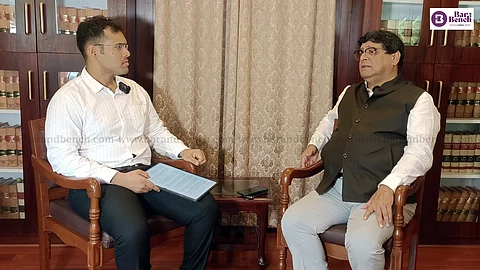Justice Sudhanshu Dhulia
Litigation Interviews
It does not send a good message: Justice Sudhanshu Dhulia on Allahabad HC judges writing to CJI
Justice Dhulia, who recently demitted office as a Supreme Court judge, speaks on choice, dignity, judicial independence and the values that must endure.
From the the Allahabad High Court to the highest court in the country, Justice Sudhanshu Dhulia has travelled a path shaped by constitutional ideals and years of appellate work. In the Supreme Court, his judgments often carried a distinct voice, marked by clarity, restraint and cultural awareness.

